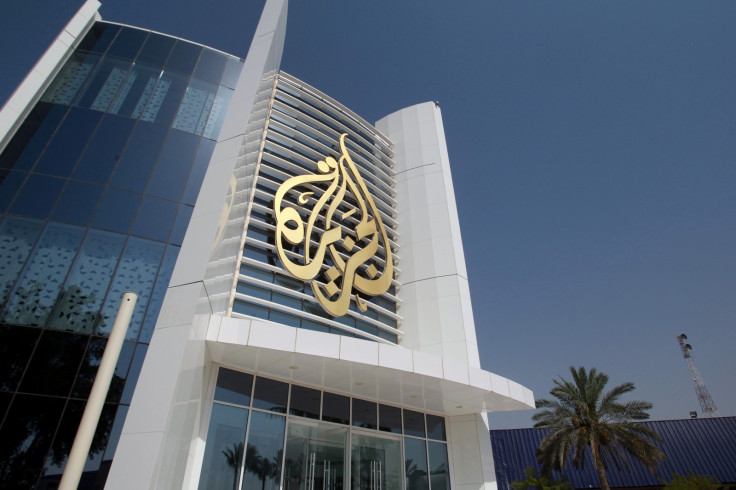Al Jazeera hack: Qatar-based media network hit by 'systematic and continual' hacking attempts
The cyberattack comes a month after Qatar News Agency said it was hacked.
Al Jazeera Media Network said it suffered a massive cyberattack targeting its systems, websites and social media platforms, the company announced on Twitter on Thursday (8 June). The Doha-based Pan-Arab satellite media network said it was combating "systematic and continual" hacking attempts on its websites and digital platforms.
"These attempts are gaining intensity and taking various forms," Al Jazeera said on its website. "However, the platforms have not been compromised." Its English- and Arabic-language channels, websites and social media feeds were still operational at the time of publication.
An anonymous senior employee told Reuters that the hacking attempts were made on the "cybersecurity of Al Jazeera."
A few hours later, Qatar's state-run television announced on Twitter that it has temporarily shut down its website "for security reasons" following the cyberattack.
A source "familiar with the matter" told Fortune that the network was facing a Distributed Denial of Services (DDoS) attack, which attempts to flood a targeted network with fake traffic in an attempt to cripple it and take down the company's server.
Multiple Al Jazeera employees took to social media saying they were experiencing issues accessing their email and the internet.
"Al Jazeera alleged victim of cyberattack in midst of Gulf dispute," Chris Sheridan, a senior White House producer for Al Jazeera, tweeted. "Colleagues having trouble with email, web access."
Hasan Patel, a senior officer for Al Jazeera's media and public relations department tweeted: "My workplace is now under cyberattack - @AJEnglish will not cave in, we will continue doing our job."
Al Jazeera has not commented on the type of the cyberattack or named any suspected perpetrators behind the cyberattack.
IBTimes UK has reached out to Al Jazeera for comment.
BREAKING: Al Jazeera Media Network under cyber attack on all systems, websites & social media platforms. More soon: https://t.co/9o3ihGGVjD pic.twitter.com/ZlBBEpTDf6
— Al Jazeera English (@AJEnglish) June 8, 2017
Al Jazeera media platforms under cyberattack. Entire Doha-based network undergoing 'continual hacking attempts' https://t.co/3yitHDWsej pic.twitter.com/eafTs5VKAb
— Al Jazeera English (@AJEnglish) June 8, 2017
The cyberattack comes just a month after Qatar's state-run news agency said it was hacked by an unknown entity and published a "false statement" attributed to Qatar's Emir Sheikh Tamim bin Hamad Al-Thani. The Gulf country immediately denied the comments attributed to the ruling emir.
However, the controversy helped ignite the ongoing regional diplomatic crisis with its fellow Arab neighbours that accuse it of supporting terrorism, Islamist militants and their rival Iran - allegations that Qatar has vehemently denied.
Following that alleged hack, Saudi Arabia, the United Arab Emirates, Egypt and Bahrain blocked access to a number of news websites including Al Jazeera and Huffington Post Arabic.
An investigation by the FBI into the QNA hack concluded that Russian hackers breached the news agency and planted the fake messages on Saudi Arabia, Iran and Israel from the Qatari government that triggered the ongoing crisis with its close Gulf neighbours.
The Kremlin has denied any involvement in the cyberattack.
"We're getting tired of reacting to unsubstantiated banalities," Andrei Krutskikh, Kremlin adviser on cybersecurity, told Interfax. "Whatever happens it is hackers. It's a stale claim and as ever there is zero evidence, and conclusions are drawn before the incident is even investigated."

© Copyright IBTimes 2025. All rights reserved.





















